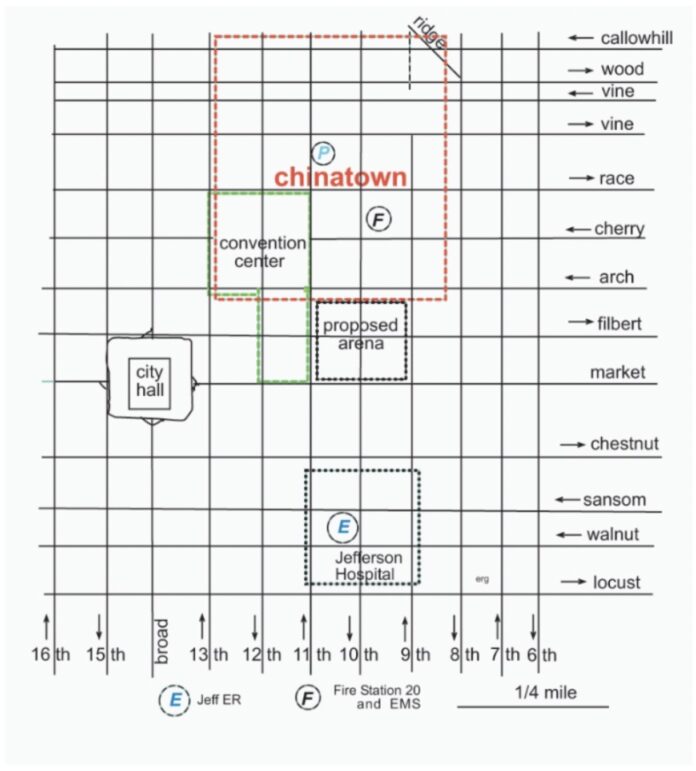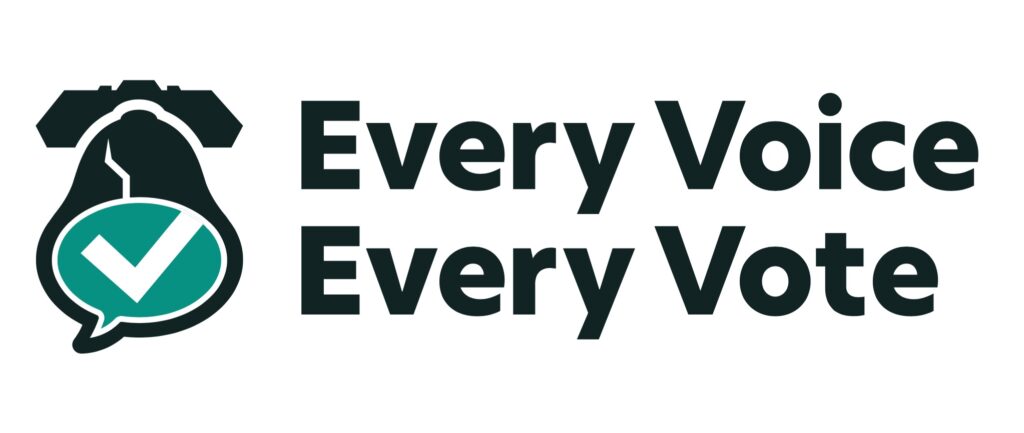
“Chinatown is a special place for me and for my art,” said Sigfried Aragon, a first generation Filipino-American and drag performer who goes by Mandy Mango.
She described Chinatown, which was established in 1871, as embodying a specific feeling — a kind of physical reassurance in her identity as an Asian-American, an experience of “both/and” without feeling pressured to pick just one or the other.
Mandy Mango just started to utilize Chinatown venues as a performer and has enjoyed events organized by Philly Asian & Queer (PAQ), a collective that aims to build community and raise the voices of people living at the intersection of queer and Asian or Asian-American identities. Drag has offered Mandy Mango a way to explore her culture — highlighting that intersection.
“We definitely feel and value when we have an audience that’s majority-Asian. We get to do those numbers we’ve always wanted to do,” she said, noting that performers often feel more free to choose songs in other languages, create acts that serve as a tribute to their culture or highlight their parents’ cultural perspectives, and connect in ways that they don’t have access to when they’re on stage in other locations.
PAQ is one of four groups collaborating to host the No Arena Drag Show, an event that aims to raise awareness and invigorate participation in the movement to oppose 76 Place — a nearly 20,000 seat sports and events venue that the Philadelphia 76ers want to build in Chinatown.
Thousands claim the neighborhood, its residents, and others — including LGBTQ+ people — will be harmed by the proposed arena.
Mandy Mango, who also works as an HIV prevention nurse, said this could even impact efforts to increase access to HIV screenings, as there’s currently a push to include them as a standard part of emergency room visits. Increased workloads could make testing the first to get deprioritized.
Organizers from No Arena Gayborhood previously told PGN that they’re worried about negative impacts to the environment and local businesses, historical and LGBTQ+ erasure, increased traffic and accessibility concerns, as well as potential clashes between sports fans and marginalized community members who will find themselves in overlapping spaces.
While Mandy Mango wants non-Asian people to recognize the cultural significance of Chinatown and the value of preserving the neighborhood, she also hopes they see the logistical and practical burdens of the build — which would require six years of construction, creating hurdles for anyone who tries to use adjacent streets, businesses and amenities during that time. Once opened, the arena would also eliminate a road that connects the Gayborhood with Chinatown — placing a physical barrier between the two neighborhoods.
Activists said this is just one of many examples of predatory developers destroying Philadelphia communities — gentrifying neighborhoods and decentralizing resources — because they view the land as profitable and easy to take from those currently using it.
It’s also part of a pattern plaguing Chinatowns across the US, with a notable comparison in Washington, DC — where an arena was built in the local Chinatown district and nearly abandoned just 30 years later. It will require $800 million in renovations to keep its teams.
Activists previously traveled to the DC arena to help Councilmember Mark Squilla — who represents the affected Philadelphia districts — see the negative impact the arena has had on the local community there, meeting with former business owners and residents who have been pushed out. Squilla, who originally stated that he would block the proposal, has more recently become less supportive of the No Arena efforts.
“He has the sole power to say no to the project at any time,” said Yvonne Lung, operations manager of Asian Americans United, who is Chinese-American and grew up both in Taiwan and in the United States.
She’s referring to councilmanic prerogative — an unwritten agreement that awards final say to Philadelphia councilmembers who represent geographical districts on the way land in their districts gets used. The idea is that those representatives would listen to the needs and opinions of residents and act accordingly.
But community members are being pitted against each other. While recent surveys found that 93% of surrounding businesses and 77% of Washington West area residents oppose the arena, trade unions and Black church leaders support it because their communities have been promised work.
“Some [proponents of the arena] are saying it’ll create jobs, but I think they’re only thinking about a certain type of Philadelphian when they say that,” underlined Yoojin Park, a Korean-American drag king who goes by Eugene Rideher Betta. “Because it’s also going to destroy and ruin the lives of thousands of Philadelphians — just not the Philadelphian that comes to mind.”
“We’re all neighbors,” he noted about the overlap between the Gayborhood and Chinatown, noting that many Chinatown organizations and businesses have embraced and showcased the queer community.
If the proposal succeeds, this construction project wouldn’t be the first to negatively impact the area’s residents. The neighborhood has been continually threatened since the opening of today’s Ben Franklin Bridge, which was built in the 1920s, leading to increased traffic. This resulted in a system that relied on Vine Street — which was widened in the 1950s, demolishing Chinatown buildings and residences. In the ’70s, the expressway was added — further cementing the divide in the neighborhood.
It’s also not the first time an arena has threatened Chinatown. In the ’90s, the Phillies proposed building a stadium nearby — a plan that was thwarted due to activist efforts. Today’s organizers want people to remember that success story as they work together against this new proposal.
“We’re still here, and we’re not going down without a fight,” Park said, noting that he’ll be channeling what he described as anti-capitalist anger on stage at the upcoming No Arena Drag Show.
At this event, which will take place in Chinatown on Aug. 24, participants will enjoy typical nightlife fun with educational experiences sprinkled into the mix. Some performers from the all-Asian cast will incorporate aspects of their heritage into their acts and share facts that will support activism efforts.
The show is just one event in a series of social gatherings Lung planned in an effort to resource supporters as they try to mobilize. She realized the need after friends wanted to learn more about the proposal but couldn’t find all the necessary information. Some hoped to support the movement but “didn’t have the facts on hand” to explain the problems to others.
Attendees will also be invited to channel their feelings into art and receive information about how to turn those feelings into actions. Organizers will provide supplies to make signs and art to carry at an upcoming march that will take place at City Hall on Sept. 7.
“We need you to let City Council know we don’t want this — especially people outside of the Chinatown community,” she said about allies supporting Chinatown residents in the effort to block the arena. “We’ve already done what we need to do.”
Lung said that those interested can do whatever they can to remind Mark Squilla — who also represents Washington Square West and the Gayborhood — of their feelings about the arena, including writing to him and showing up to city council meetings with signs and tee shirts to share that message.
“Coming together is the best way to kind of fight this,” emphasized Park. “Not just between the queer and Asian communities but all the different communities that make up Philadelphia.”
No Arena Drag Show will take place 5-8 p.m. on Aug. 24 at 1023 Callowhill Street. For more information or to purchase tickets, visit https://bit.ly/4fK8wy3.
